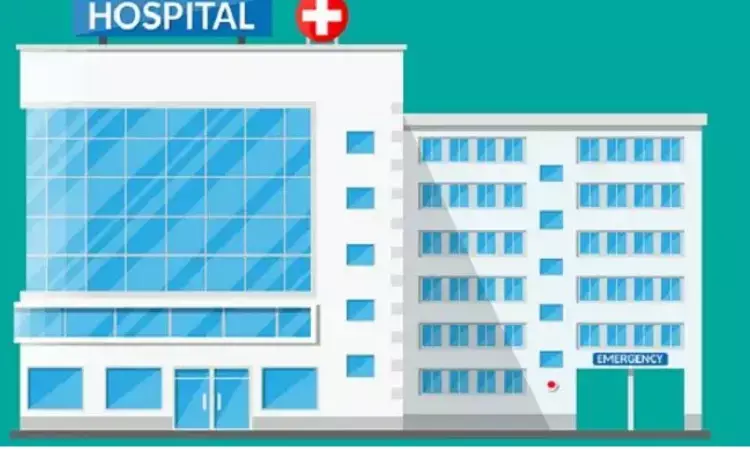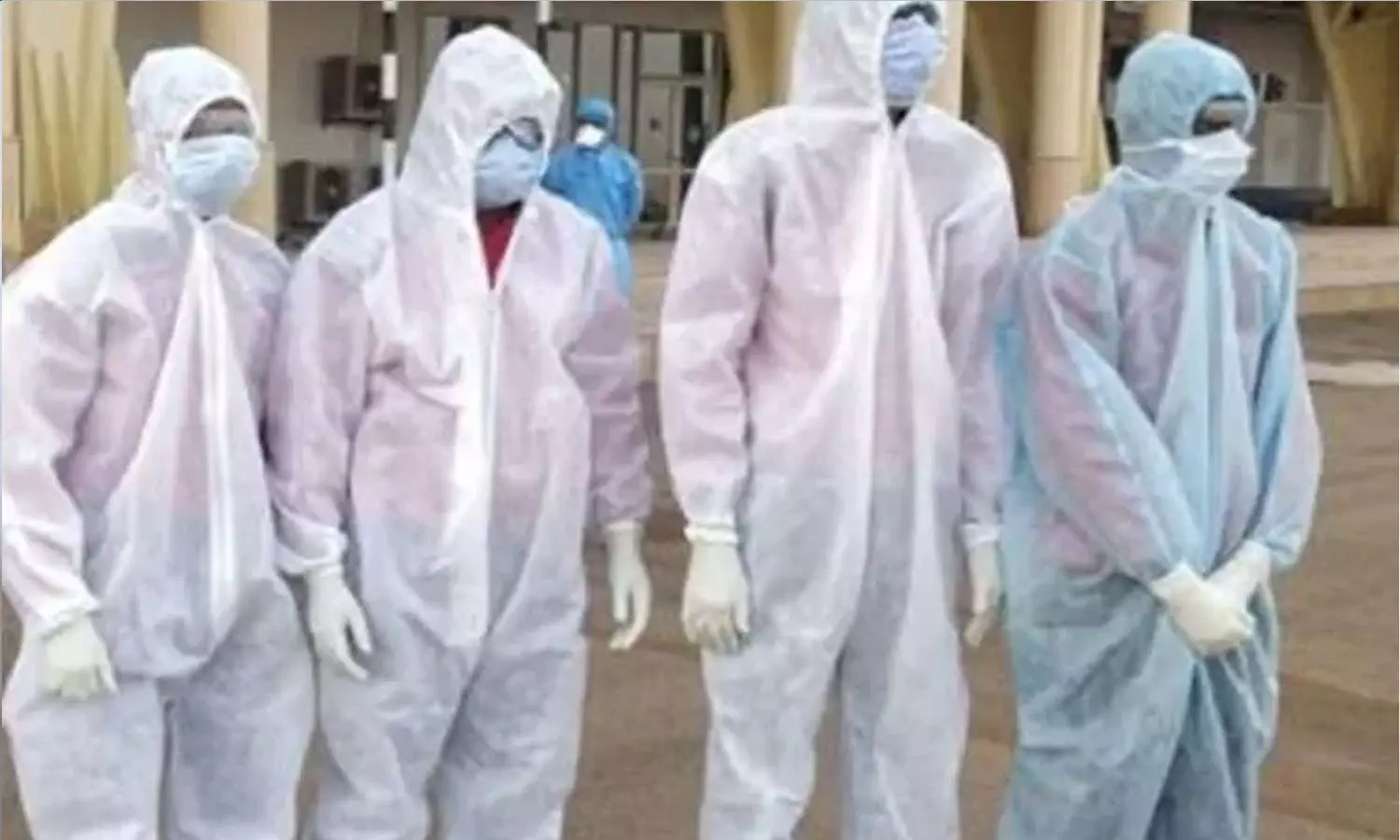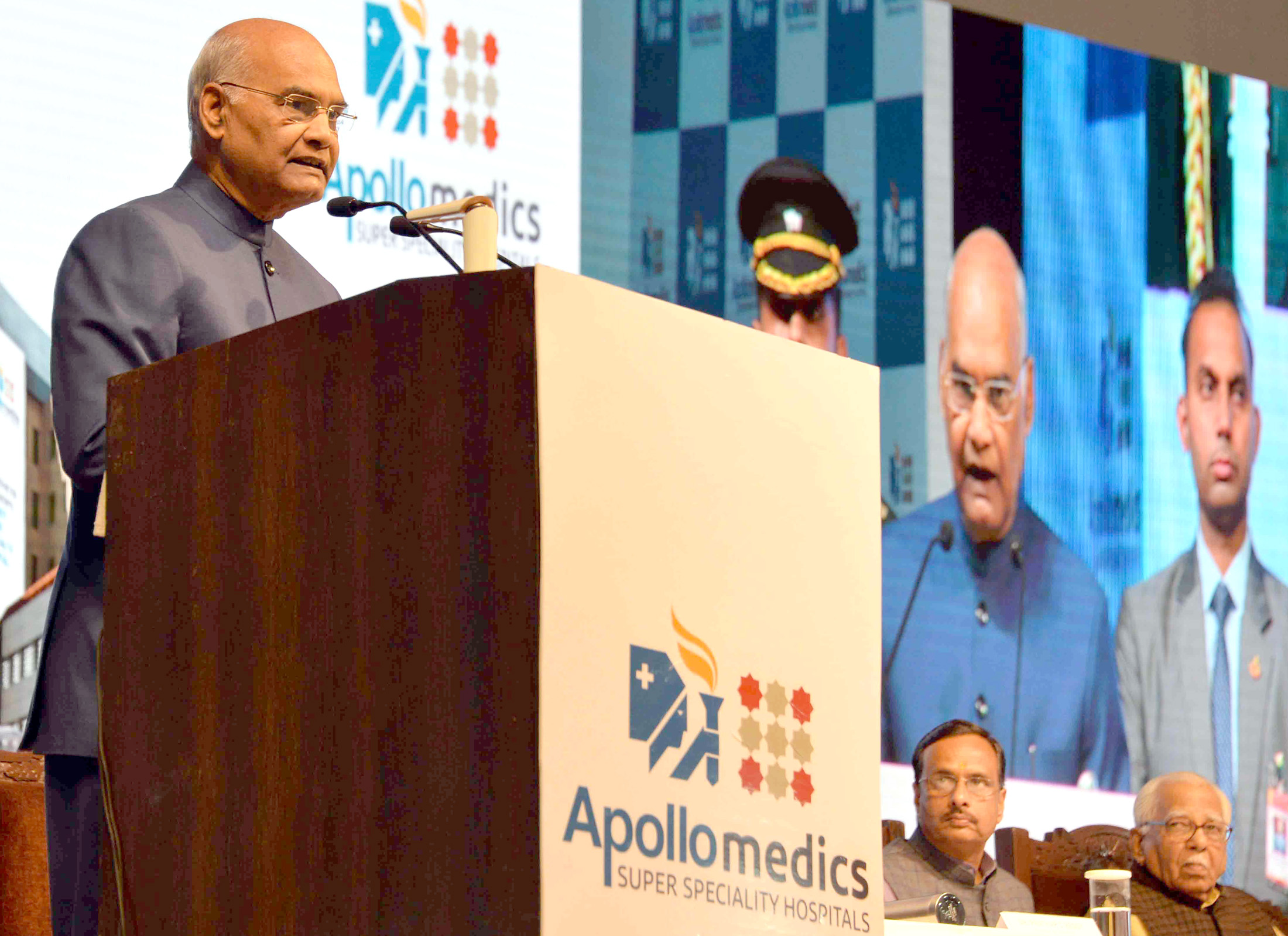- Home
- Medical news & Guidelines
- Anesthesiology
- Cardiology and CTVS
- Critical Care
- Dentistry
- Dermatology
- Diabetes and Endocrinology
- ENT
- Gastroenterology
- Medicine
- Nephrology
- Neurology
- Obstretics-Gynaecology
- Oncology
- Ophthalmology
- Orthopaedics
- Pediatrics-Neonatology
- Psychiatry
- Pulmonology
- Radiology
- Surgery
- Urology
- Laboratory Medicine
- Diet
- Nursing
- Paramedical
- Physiotherapy
- Health news
- Fact Check
- Bone Health Fact Check
- Brain Health Fact Check
- Cancer Related Fact Check
- Child Care Fact Check
- Dental and oral health fact check
- Diabetes and metabolic health fact check
- Diet and Nutrition Fact Check
- Eye and ENT Care Fact Check
- Fitness fact check
- Gut health fact check
- Heart health fact check
- Kidney health fact check
- Medical education fact check
- Men's health fact check
- Respiratory fact check
- Skin and hair care fact check
- Vaccine and Immunization fact check
- Women's health fact check
- AYUSH
- State News
- Andaman and Nicobar Islands
- Andhra Pradesh
- Arunachal Pradesh
- Assam
- Bihar
- Chandigarh
- Chattisgarh
- Dadra and Nagar Haveli
- Daman and Diu
- Delhi
- Goa
- Gujarat
- Haryana
- Himachal Pradesh
- Jammu & Kashmir
- Jharkhand
- Karnataka
- Kerala
- Ladakh
- Lakshadweep
- Madhya Pradesh
- Maharashtra
- Manipur
- Meghalaya
- Mizoram
- Nagaland
- Odisha
- Puducherry
- Punjab
- Rajasthan
- Sikkim
- Tamil Nadu
- Telangana
- Tripura
- Uttar Pradesh
- Uttrakhand
- West Bengal
- Medical Education
- Industry
Overhaul of major health facilities, suggests Chawla committee

Srinagar: In order to improve health care services in Jammu and Kashmir, an expert panel has made suggestions of overhauling major tertiary care hospitals and medical colleges in the state. The expert panel is supposed to assess improvement in medical facilities and it made a report suggesting a number of measures for better patient care services across hospitals.
The committee was headed by Prof Y.K. Chawla, former Director PGI, Chandigarh. Prof Showkat Ali Zargar, Former Director, SKIMS, Srinagar, Prof Kaisar Ahmad, Former Principal, Government Medical College (GMC), Srinagar, Prof Ravi Gupta- Medical Superintendent, GMCH, Chandigarh (now retired) were the members of the committee.
Creation of paid ward:
As per a recent media report by Rising Kashmir, the Committee stated in a report that hospitals under the Jammu and Kashmir Medical College do not have private wards for patients. "The majority of medical colleges and institutes in the country have private wards. Paid beds in Government colleges have advantages such as revenue generation, provide a separate room for those who desire such facility and can afford it," the report said.
Paid beds are most likely to reduce patient transfer from UT to Delhi, Chandigarh, Amritsar and elsewhere. According to the guidelines, paid beds generate goodwill and improve the reputation of public hospitals by allowing the patients of opinion makers to be accepted in the facility. It had been suggested that at least 10% of all hospital beds be designated as private wards.
"Different departments of hospitals in Srinagar are spread out in different areas, far apart, which cause difficulty in taking consultations for patients from different specialists," it said. The group recommends identifying a new area of 150-200 acres where distinct hospital blocks with all specialisations in one location can be built. "The present structures could be used. As far as possible those areas should be identified where both hospital and college can be located in same campus," panel said.
Rapid surface transport:
According to the committee, a Rapid Surface Transportation system or a shuttle system with rapid access corridors for patients and medical workers can be established between these far-flung departments. "At places, the colleges are 5-6 km away from associated hospital making it difficult for students to reach them, especially in hilly areas. Good arrangements should be made for transportation of students for their clinical training in the hospital after their classes in college," the committee recommended. It was discovered that the approach roads to Medical College Hospitals are clogged, slow, and dangerous for transporting patients in emergency situations.
Residential facilities:
According to the committee, faculty housing is planned for newly established colleges but is almost non-existent in GMC SKIMS Bemina and GMC Srinagar. In addition, nursing personnel and paramedics are understaffed in senior homes. "For those who can't be provided residential facilities immediately, a proper arrangement should be made for their transportation during an emergency. Excellent accommodation could be a big attraction for good faculty to join," the report said.
e-hospital and IT initiatives:
As far as e-hospital services and IT cells are concerned, except for SKIMS Soura, none of the colleges have those facilities. The committee suggested that IT initiatives such as telemedicine, teleradiology, tele-ICU, tele evidence, and some others should be addressed. "These departments will ensure digitization of medical records, hospital management systems, pharmacy, laboratories, finance, purchases, academic records," it said.
The report suggested that these reports would help to mitigate the shortage of staff and help to get expert opinions instantaneously. In the hospital, a picture archiving and communication system (PACS) should be made available for image transmission from the place of image acquisition to numerous physically dissimilar locations. "Tele-consultations will provide a great platform for improving patient care especially for patients in far-flung areas," it notes.
Creation of dedicated engineering wing:
The committee observed during the inspection that the current development and establishment of new Medical Colleges has necessitated the creation of a specialised Engineering Wing with engineers from the civil, mechanical, electrical, bio-medical, and hospital architecture branches. It stated that courses in Hospital Engineering should be initiated in partnership with reputable engineering institutes, and that patient safety should be prioritized.
"Except SKIMS Soura, none of the other colleges in J&K has such a department. The creation of such a department will promote organ donation and will pave the way for solid organ transplantation in the UT," it said. Notably, the National Medical Council (NMC) has recommended courses in Emergency Medicine in every medical college and it is most likely to create job avenues for internists, intensivists, surgeons, plastic surgeons, orthopedics, neurosurgeons and other supporting support.
ICUs:
Although a few beds have been set aside for ICU activities, the committee stated. At least 10% of total beds should be set aside for intensive care units. "Ideally, there should be separate Medical ICU, Surgical ICU, Neonatal ICU, and Pediatric ICU," it said.
Operation Theatres:
The report said that Operation Theatres including modular ones should be made which will speed up surgeries with better results and will reduce the waiting period. "Currently, patients are in long queues for waiting to get operated," it added.
Hospital pharmacy at low cost:
According to the report, every hospital, like SKIMS, should have an in-hospital pharmacy where medications, disposables, and medical devices may be purchased for less than half the market price. It goes on to say that models of the Tata Memorial in Mumbai or the CMC in Vellore should be followed.
Crèche:
According to the committee, each hospital should have a well-equipped and adequately staffed crèche that would look after the children of the employees while they execute their tasks without worry.
High-end ambulances:
The expert group believes that high-end ambulances with all resuscitative equipment and staff certified in Basic Life Support and Advanced Life Support courses are urgently needed. It recommended that referral audits and back referrals be encouraged.
Multilevel parking:
The committee recommended that parking and a Dharamshala for patient attendants be built as soon as possible. Parking is a major issue in all hospitals, and it is only going to get worse in the coming years.
Equipment:
It notes that almost all colleges are deficient in medical equipment due to lack of adequate funds and faulty procurement system except in SKIMS Soura. "Request for equipment should come from user departments and faculty members should be involved in technical specifications or follow AIIMS/PGIMER website/J&K," it said adding that the requirement of equipment should be done as per MCI guidelines.
More PET CT machines needed:
During the visit, the committee learned that there is only one PET CT machine in a government facility in the entire state of J&K, implying that many more should be approved. Furthermore, the committee stated that, given the high number of cancer patients in the region, each college should have at least one PET scan and MRI/CT scanner. "This will have great ramifications in the survival, economics and comfort level of patients who need to travel large distances for such an essential investigation in cancer cases," it said.
SKIMS Soura in need of Cath Lab:
The committee was disappointed to learn that the Cardiology Department only has one cath lab, which is nearly ten years old and could fail at any time. Similarly, the MRI machine in Radiology is approximately 15 years old and is an older model. Many other departments at SKIMS Soura are in the same boat. "Keeping a load of cardiac patients, there is an urgent need for procurement of a new Cath Lab. The Department of gastroenterology which used to be one of the few best-equipped departments doesn't have now adequate number of simple endoscopes, lacks endo-ultrasound, and many other essential types of equipment," it notes.
Issues related to individual Colleges
GMC Srinagar
The report said that GMC Srinagar has seven associated hospitals which are spread out in different parts of Srinagar about 5 to 10 km apart. "It is quite cumbersome to administer and coordinate for the principal, extremely difficult to have on-time consultation for patient care and difficult to mobilize sick patients for specialized investigations and intervention," the report said. "A thought process is required to locate all facilities near each other. Trauma, Orthopaedics, Medicine and its allied specialties, Surgery and its allied specialties, and some others should be in one place," it notes.
New Medical Colleges:
It was noticed that the Government Medical College and Hospital Anantnag are 5 kilometres apart, which makes clinical training difficult for students and leads in tiredness and time waste. For new medical colleges, equipment should be obtained as soon as possible. Many faculty posts in all-new colleges are unfilled, causing challenges for working faculty and, more crucially, jeopardizing patient care. According to the committee, sanitary workers, nursing unit attendants, technologists, and other support employees are also needed.
"Most departments in new medical colleges do not have junior and senior residents. New colleges should start DNB or MD/MS Courses which will bring perceptible improvement in inpatient care as well as academics and provide more working hand," it said. Moreover, "Most of the departments lack essential equipment. For instance, the Department of Pathology in Baramulla did not have microtome and other smaller equipment," it added.
Blood banks:
The expert committee said that blood banks need to be upgraded and facilities for the separation of components need to be created urgently.
DM programs:
According to MCI standards, DM/MCh programmes should be developed in as many specialisations as possible so that particular departments can grow and get working hands through residents. It also said that the valley's largest maternity hospital Lal Ded faculty was keen to start courses in Fetal Medicine and IVF facility and these initiatives should be supported.
Recommendations to improve health care:
Overall, the committee believed that these proposals would improve health-care services in Jammu and Kashmir significantly. It was decided that the committee should be updated on the adjustments made on a regular basis.
Sanchari Chattopadhyay has pursued her M.A in English and Culture Studies from the University of Burdwan, West Bengal. She likes observing cultural specificities and exploring new places.
Next Story




